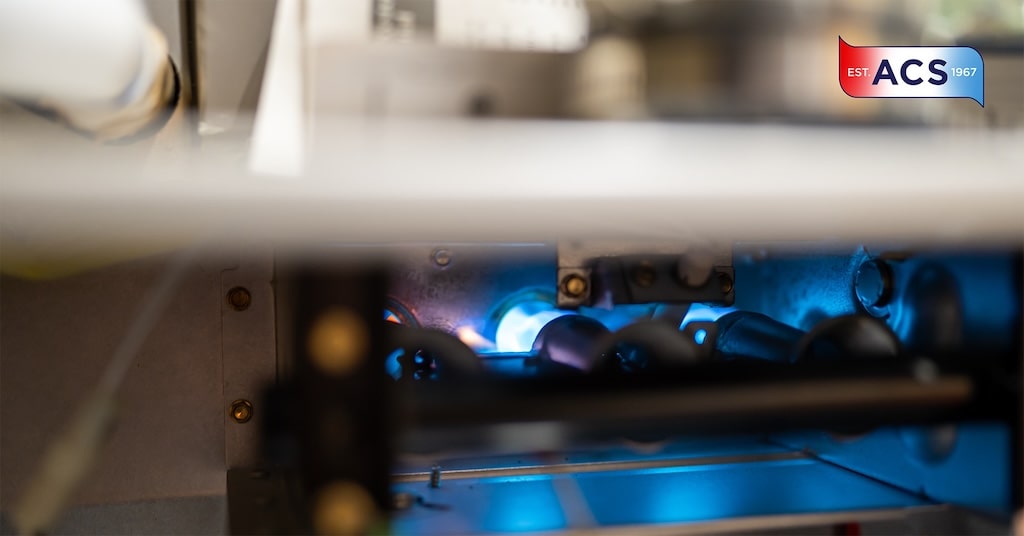As one of the most energy-efficient heating systems on the market, heat pumps are in high demand. However, before running to get your hands on this popular HVAC heating system, you should determine which type of heat pump works best for your home.
At ACS, we offer top-quality heating services and exclusive industry insight to help improve your heating system’s performance. By working with our HVAC experts, you can determine which heat pump best fits your needs and receive premium installation, maintenance, and repair. Read below to learn more about the different types of heat pumps and how they could work for your home.
Air Source Heat Pumps
An air source heat pump, also called an air-to-air pump, pulls heat from outside and transfers it into your home. As one of the most common and affordable types of heat pumps, air-source heat pumps are found throughout homes nationwide. Homeowners love air source heat pumps for the savings, as these tools can cut electricity use for heating in half. Homeowners also love air source heat pumps for their variety, as they come in the following models:
Ductless vs. Ducted
Air source heat pumps can be used in homes with or without air ducts. Ductless systems are easy to install, as they only require a small hole through the wall to connect system components. Ducted systems use a home’s ductwork, which is optimal for residences with existing ventilation systems or new construction.
Split vs. Packaged
Split systems are a popular choice for homeowners. These heat pumps have one coil inside and one outside, allowing supply and return air ducts to connect to the system’s indoor central fan. Meanwhile, packaged systems typically have both coils and fans outdoors, allowing air to enter the home through ductwork passing through a wall or roof.
Multi-Zone vs. Single-Zone
Single-zone systems heat a single room with one outdoor condenser and one indoor head. In contrast, multi-zone systems can circulate air to individual rooms, hallways, and open spaces. These systems have at least two or more indoor coils connected to one outdoor condenser, creating a “zone” of comfort.
Geothermal Heat Pumps
A geothermal heat pump, also known as a water-source or ground-source heat pump, transfers heat energy from either the ground or a nearby body of water into your home. Because these heat pumps require proximity to a well, lake, or other natural water source or a specific sized lot, subsoil, or landscape, they may not be as common as air-source models. However, if you are eligible for a geothermal heat pump, they have their fair share of benefits. Although their installations cost more, geothermal heat pumps have lower operating costs, high energy efficiency, and adaptability to various climates. Below are some examples of geothermal heat pumps.
Open Loop vs. Closed Loop
Typically, closed-loop geothermal systems generate energy by circulating refrigerant or water through a closed loop of pipes. Meanwhile, open-loop systems circulate water between pipes and a nearby body of water. While both systems are efficient options, open-loop systems may be more cost-effective, as placing pipes underwater is cheaper than digging holes for underground pipes.
Horizontal vs. Vertical
Horizontal systems use the closed-loop approach, using underground pipes in horizontal trenches. If you have a large yard, a horizontal geothermal system may be a good option. However, you’ll have to prepare for landscaping alteration. In contrast, vertical systems won’t disturb landscaping, as they use pipes inside holes that are quite deep and narrow. These systems work well in places where the soil is too compact for a horizontal system. However, they generally cost more to install.
Absorption Heat Pumps
An absorption heat pump, or gas-fired heat pump, generates energy through a heat or thermal source like the combustion of natural gas, steam solar-heated water, or air or geothermal-heated water. Absorption heat pumps function similarly to air-source heat pumps, except they are not driven by electricity. Generally, absorption heat pumps are considered newer, larger, and more complex than other models. However, they are an excellent option for those seeking to reduce their electricity use.
HVAC Heating and Cooling with ACS
At ACS, we are committed to helping you get the most out of your heating and cooling systems. Whether it’s repairs, replacement, installation, or routine maintenance, no heating job is too big or too small for our team of certified HVAC technicians. If you’re looking for a heat pump replacement or repair, connect with our team today for premium HVAC maintenance in Covington, Milledgeville, and surrounding areas.



